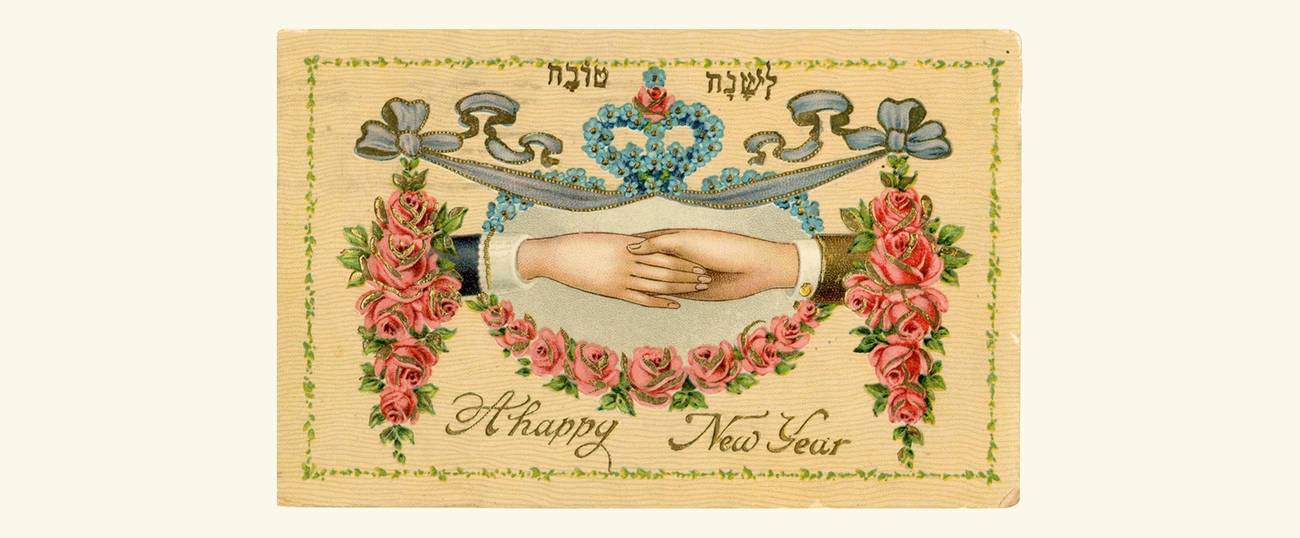Practical Awe
The High Holidays fall in the shadow of the first anniversary of the Tree of Life shooting. Here are four things you can do to make America more just in 5780.




As the High Holidays approach, we are commanded to take this time and ask ourselves hard questions. This month, Elul, is about reflecting, about pushing ourselves to be better.
It’s never an easy task, and it’s rendered harder by the fact that we’ll be marking the High Holidays this year very close to the first anniversary of the Tree of Life shooting, the worst anti-Semitic crime in American history. These are uneasy times: White nationalism, domestic terror, and rising hatred of all sorts will haunt the doors of our synagogues on our most joyful days as we struggle with security threats to our community and with how to balance our need for safety with creating a welcoming and inclusive spiritual home.
This country is in so much pain that it’s hard to hold it all on a daily basis, never mind on big days of reflection. But we’re commanded to wrestle this time of year, and so wrestle we must: This year, as Americans and as Jews, let’s double down on refusing to accept a country where any American lives in fear, instability, and pain. Let’s double down on loving our Jewishness and loving our nation by demanding better, beginning with ourselves.
How? Not just by talking or writing or thinking or praying, but by doing. There are many ways we can challenge ourselves to change the world by changing ourselves first, but here are four ideas to consider if you’re serious about committing to some teshuva:
Speak Up: For years, I loved the term “lame.” It was one of my favorites. I used it daily. It expressed for me something ineffable, a middle school taunt that felt both light as air and full of disdain. One day, a friend who works in disability rights asked me to stop using it. She pointed out that the term lame is used to mock people living with disabilities, that it’s dehumanizing, hateful, and cruel. It has a cruel history and many people see it as a slur. I wanted to howl. I wanted to tantrum. I wanted the word. I decided instead that people mattered more. I gave it up.
It’s an infinitesimally small act that changed how I think.
The more I struggled to give up lame, the more I actually thought about ableism. About how we degrade and dehumanize people living with disabilities everyday. And the more I thought about it, the more I started reading about disability rights and learning about the lives that are on the line in America. Every time I wanted to say lame and caught myself, I thought about ableism, and how I could be better in that one particular fight. When lame slipped through my mouth, I was disappointed and pissed off. I would apologize. I found that invited conversation, invited opportunities to learn, invited others to abandon cruel words. Lame comes to the tip of my tongue at least once a week. I catch it there. It is a small active way I fight hate. It requires me to think. This year, I want to give up “crazy” and other terms that stigmatize mental illness. You may mock this approach as too stringent, or dismiss it as some sort of censorship, but try watching your tongue—a Jewish value if ever there was one—and you’ll be amazed by how powerful a catalyst for change the mere decision to watch what we say can be. Pick a word you know is wrong, and say goodbye to it.
Read Up: I get that we’re all busy. I know we are all tired. Trust me, I am tired too. But reading remains a transformative experience like no other, so why not welcome in the new year by choosing a book you might not have read otherwise, one that will educate you on a particular type of hatred and oppression you know nothing about? As we fight anti-Semitism we are often extolling people to learn our history and understand it—we owe other communities the same.
Personally, I enjoyed Kristin Rowe-Finkbeiner’s book on feminism and the oppression American women face, even though I don’t share her rosy view of the Women’s March. Ijeoma Oluo’s So You Want to Talk About Race is another good choice. Go on Amazon or to your local bookstore and you’ll find queer studies, women’s studies, African American history, Latino history, Asian American history and so much more. Take time and learn someone else’s story in this country and in this world. Reading will help you understand how someone else moves through the world and how hatred and oppression shapes their steps.
Show Up: Ninety-nine percent of success, as the old adage has it, is just showing up. And there’s no better way to really get to know other people and other ways of seeing the world than joining a group you wouldn’t have otherwise considered joining and showing up to a meeting or three. Think about a community that has faced violent hatred, as you have, this year, and find a way to join them. It can be an interfaith charity group, a dialogue group, an activist group, or any other place where people meet and talk about dismantling hate and learning about different communities. Whether it meets weekly, monthly, or annually, put yourself in a physical space with others who think and feel differently, and who have divergent experiences and hopes. I was honored to be invited to join the Inter Jewish Muslim Alliance earlier this year and it has been an incredible experience. Conversations can be hard, conversations can be fruitful, but regardless of any particular outcome, you are dedicating yourself to building something, to hearing something, to standing in opposition to hatred and cruetly. That is always worth doing.
Rise Up: Find a way to take regular action to dismantle systemic oppression. While internal work and community-based work is really important, we also need to tackle systems and policies if we want to make sustainable change. Taking on systemic problems can feel intimidating, but I want you to do one small regular act. This could be a monthly donation or joining a group that will put you in regular action. Call your member of Congress and support a bill, write a letter to the editor, show up to that rally. There are people, like me, who will gladly give you marching orders. Pick one you like and just join. Give money, give three hours a month. Just start.
These are small asks. In the face of the overwhelming problems our community and our country are facing, they may seem insufficient. But their smallness also makes them implementable: Hang them on your fridge and check them off before Yom Kippur. As you do, remind yourself that fighting hate is a spiritual practice, and that whether or not 5780 brings with it more light, more peace, and more joy is strictly up to us.
***
Like this article? Sign up for our Daily Digest to get Tablet magazine’s new content in your inbox each morning.
Carly Pildis is the Director of Grassroots Organizing for the Jewish Democratic Council of America, and an advocacy professional based in Washington, D.C. Her Twitter feed is @carlypildis, and her website is www.carlypildis.com.